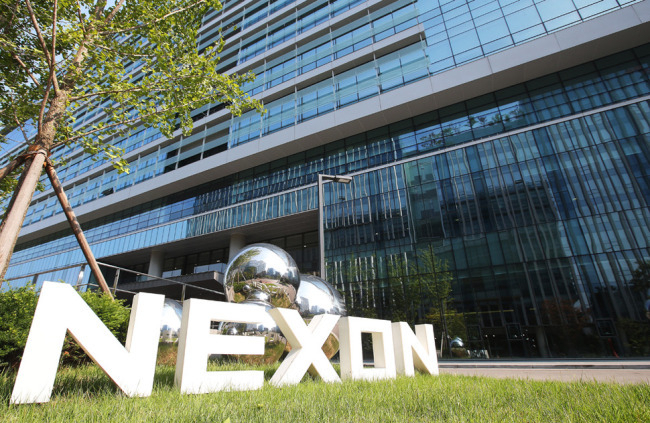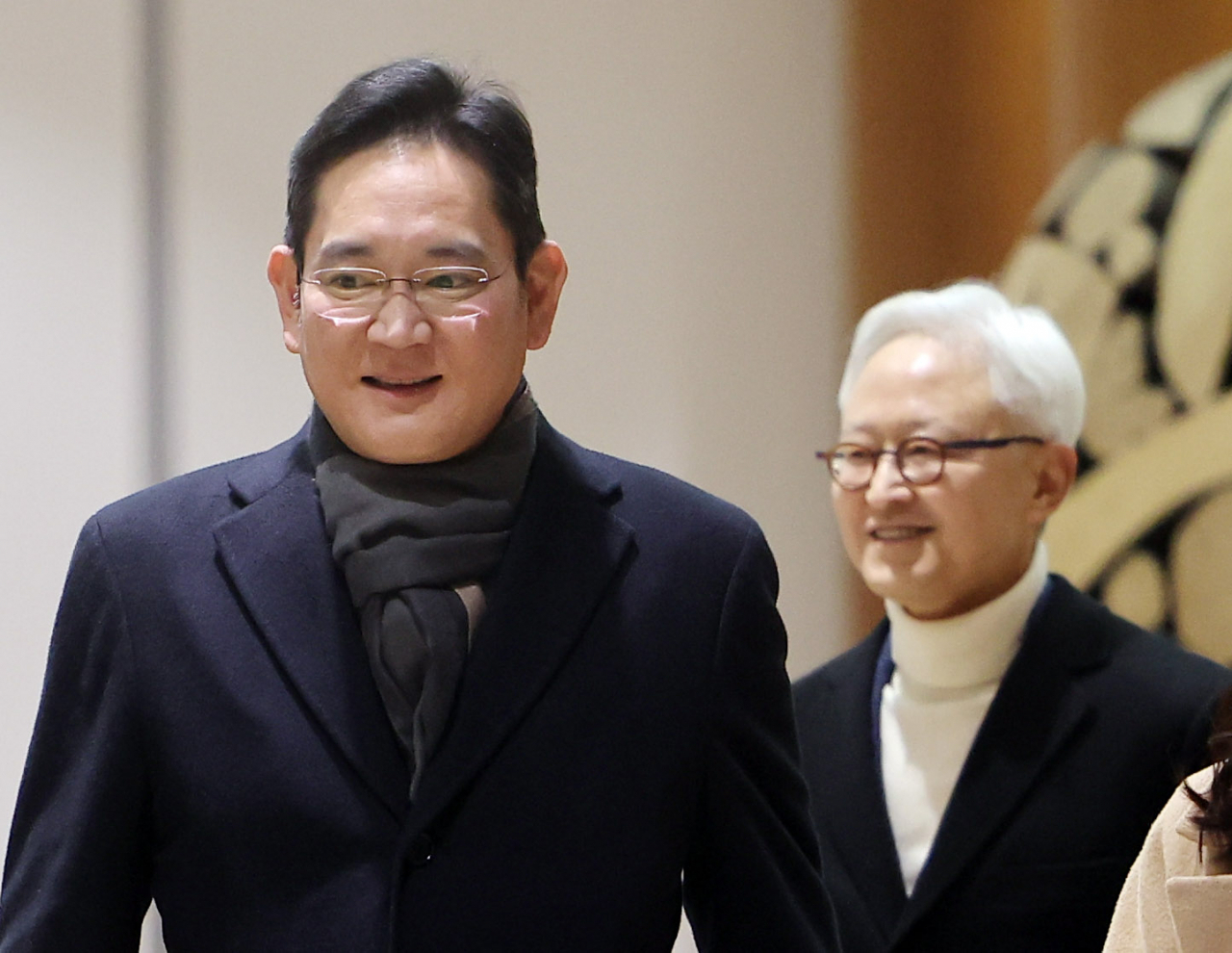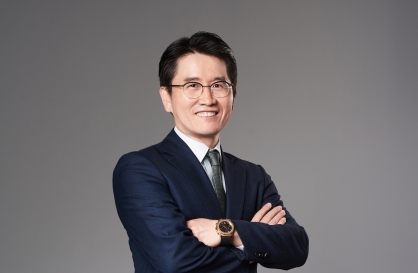[KH explains] Nexon’s failed stake sale reignites dispute over ‘punitive’ inheritance tax
China’s Tencent, Saudi state fund cited as potential bidders to acquire W4.7tr stake, stoking fears of outflow of national wealth
By Choi Ji-wonPublished : Jan. 1, 2024 - 17:01

Controversy over South Korea's high inheritance tax has resurfaced as the government failed again in its tender offer to sell a 4.7-trillion-won ($3.62 billion) stake in NXC, a holding firm of the nation's largest game developer, Nexon.
The open bid, hosted by the Korea Asset Management Corp., to sell the Finance Ministry's 29.3 percent stake, or 852,000 shares, in NXC ended in another failure, according to Kamco's auction site Onbid on Friday, with no offers being made. The first bid, held Dec. 18-19, also ended with no offers.
The NXC shares were turned into the government in May by the surviving family members of Nexon's late founder Kim Jung-ju as inheritance tax. It was the highest inheritance tax paid in corporate stocks to date.
With the stake, the government became the second-largest shareholder in NXC, which controls the Tokyo-listed gaming developer and publisher Nexon Co.
When the government put the whole bulk on a tender offer earlier this month, the failure was somewhat anticipated, according to industry sources. Not only were they all unlisted stocks which are untradable in the market, but, even with the whole 29.3 percent stake in hand, the successful bidder will not gain management rights over NXC.
Kim's bereaved family members have a combined 69.34 percent stake in the holding firm, with his widow and the new internal executive director, Yoo Jung-hyun, owning the largest 34 percent share.
Notorious 50% tax rate
The government struggling to sell the shares it received through inheritance tax is not news, however.
According to the National Tax Service, as of the first half of 2023, the total value of stocks the government received in tax since 1997 when stock payment was introduced, amounted to 8.28 trillion won. Just as in the case of NXC, they were all unlisted stocks, and only around 19 percent of the lot, or 1.58 trillion won, have since been sold.
The controversy surrounding the nation's "notoriously high" inheritance rate has once again heated up.
The maximum tax rate on inherited assets in Korea is 50 percent, double the average for the Organization for Economic Co-operation and Development nations, which stands at 25 percent. A 20 percent surcharge is imposed for the largest shareholders of big conglomerates when they bequeath their holdings, raising the maximum ceiling to 60 percent.

The founding family of the nation's biggest conglomerate Samsung Group has continued selling stakes to pay their succession tax bill worth 12 trillion won since the late Samsung patriarch Lee Kun-hee died in 2010 with an estate valued at 20 trillion won.
Other heirs of some of the country's biggest conglomerates, including LG, SK and Lotte, are also selling their stocks and taking loans on them to pay off the hefty inheritance taxes.
Hindering businesses
The high level of taxation has been criticized as discouraging domestic businesses and leading to an outflow overseas of national assets.
Professor Wi Jong-hyun, a game industry expert who teaches business at Chung-Ang University, said NXC is one such case.
"Nexon is the only game company thriving in the domestic industry right now, and such confusion (rising from inheritance tax) could interfere with (the company's) management," Wi told The Korea Herald.
The professor suggested the best scenario for NXC now would be to break down the near-30 percent stake for sales to so-called "silent investors" from abroad, among which China's Tencent and Saudi Arabia's sovereign wealth fund, the Public Investment Fund, have been mentioned as potential buyers. Wholesale acquisition by foreign entities should be avoided, he stressed, as it could lead to the outflow of the country's resourceful assets.
"For instance, Tencent already has a strong share in the domestic (gaming) market. If it takes over Nexon, that could imply the collapse of a key axis of our gaming industry," Wi warned. Tencent is a major shareholder of Netmarble and Krafton, the second and third biggest players in the local market, respectively.
In some worse cases, owners forsake their companies to avoid the tax.
In 2008, the country's then-top nail-clipper producer, Three Seven, was sold to a local pharmaceutical company as the late owner's surviving family members could not afford to pay a 15-billion-won inheritance tax. Korea's No. 1 seed company, Nongwoo Bio, was acquired by Nonghyup Economics Holdings in 2014, while condom-maker Unidus was sold to a private equity fund in 2017 for similar reasons.
Biopharma Celltrion CEO Seo Jung-jin, now in his late 60s, voiced his apprehension during a shareholders meeting in March, saying "Celltrion will become a state-run company when I die due to inheritance tax."
"About time"
As of 2021, some 30 percent of local small and medium-sized companies with business operations of over 30 years are helmed by leaders in their 70s, while about 80 percent are led by those in their 60s, according to November data from the Korea Federation of Small and Medium Business.
Discussions on amending the 23-year-old tax system -- last revised in 2000 -- have been ongoing in the politics and academic sectors.
Former Finance Minister Choo Kyung-ho recently addressed the local parliament on the matter, saying "It is about time we put the inheritance tax system under review.”
"While we need to lower (the tax rate) overall, bringing up the topic itself still arouses much opposition,” he said, pointing out that part of public sentiment is strongly against easing the regulation as it could aggravate the "passing on of wealth."
In a report released in November, a group of local professors, including Park Sung-ook who teaches tax administration at Kyung-Hee University, proposed the maximum tax rate be reduced to 40 percent from the current 50 percent, while the headlining range baseline be upped to 5 billion won from the current level of 3 billion won.






![[Weekender] How DDP emerged as an icon of Seoul](http://res.heraldm.com/phpwas/restmb_idxmake.php?idx=644&simg=/content/image/2024/04/25/20240425050915_0.jpg&u=)


![[Music in drama] An ode to childhood trauma](http://res.heraldm.com/phpwas/restmb_idxmake.php?idx=644&simg=/content/image/2024/04/25/20240425050929_0.jpg&u=)









![[Herald Interview] Mistakes turn into blessings in street performance, director says](http://res.heraldm.com/phpwas/restmb_idxmake.php?idx=652&simg=/content/image/2024/04/28/20240428050150_0.jpg&u=20240428174656)
